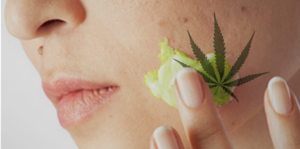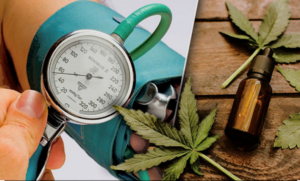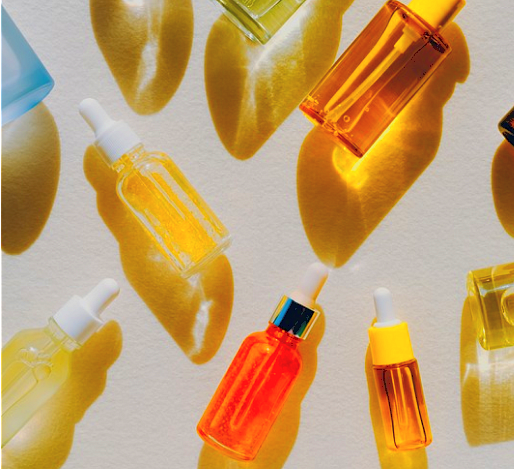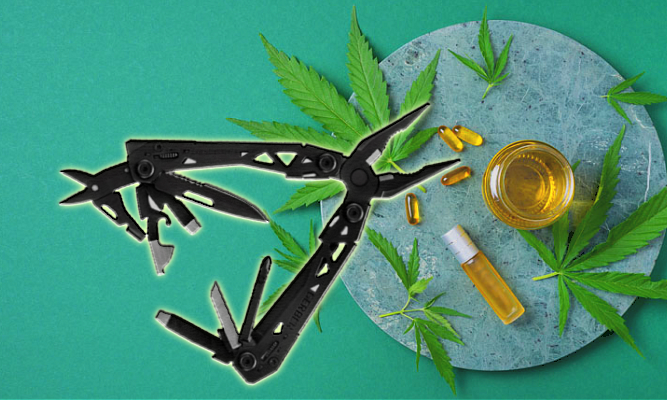CBD. Those three letters are getting more media-attention then ABC. It seems like everywhere you turn there is another ad, another product, and another opinion related to CBD. Without doubt as the legal minefield for cannabis research was finally cleared in 2018, the floodgates have opened and scientific research has begun in earnest. Although the hemp plant, it uses, and its benefits have been known and taken advantage of for over 5,000 years, in the modern regulated world this last five years of testing and cataloguing have just begun. For this reason, every day, we are finding out evermore about our amazing relationship with this amazing plant. To help illustrate the potential of CBD, to make you aware of the range of applications, and to help you find the routine that will help you ‘balance’ your body and your mind’s needs, we have put together this article outlining the many uses to which this wonderful biological tool can be put. So here we go, the list is growing longer every day, and some have received more publicity than others, yet the potential is there, the testimonials continue to pour in, and clinical studies are starting to fill in the gaps.
Anxiety
Most likely the area that has undergone the most clinical study, numerous studies have looked at how cannabidiol might be used to treat various neuropsychiatric disorders. A study published in October 2015 in Neurotherapeutics, concluded that topical CBD has “considerable potential as treatment for multiple anxiety disorders.” What’s more, a study review published in September 2015 in the Journal of the American Society for Experimental NeuroTherapeutics found that “preclinical evidence strongly supports CBD as a treatment for anxiety disorders,” including PTSD, generalized anxiety disorders, obsessive-compulsive disorder, and seasonal affective disorder.
CBD acts on the endocannabinoid receptors in the limbic system—a set of brain regions known to play a role in many important functions, including the regulation of emotions, storage of memories, sexual arousal, olfaction (or our sense of smell) and forming of learning patterns. When the limbic system is out of equilibrium, such as when an intrusive memory leads to anxiety and insomnia, CBD activates the ECS to help repress that memory and, consequently, facilitate sleep. By restoring hormone balance CBD acts as the great equalizer.
Skin Treatment
CBD is included in elixirs, serums, correctors, and moisturisers that can target a wide range of skin concerns including aging, acne, eczema, and psoriasis. CBD and its interaction with the endocannabinoid system (ECS) is thought to regulate the production of sebum/oil, an oily, waxy substance in the skin produced by the body’s sebaceous glands and one of the main culprits to cause acne. Research has also firmly established that the second main factor is that acne is an inflammatory condition. Although multiple factors trigger acne, we know that anything you apply to skin that can reduce inflammation and help soothe skin (that’s where CBD comes in) is likely to visibly reduce breakouts, especially acne-related redness. Pair this with the anti-inflammatory effects it has on oil-producing glands, and looking after your skin will be smooth sailing.
As it comes from a plant, it’s not surprising that CBD oil also has antioxidant properties. The antioxidants in CBD are but another example of a topical use that helps lessen the visible signs of ageing. By counteracting free-radical damage and reducing the look of inflammation, CBD anti-ageing creams visibly diminish issues like wrinkles, skin dullness, and ruddy skin tone.
In addition to its anti-aging properties, studies have shown CBD can help to clear skin, relieve itching, and present anti-microbial properties – you can see why CBD is the new wunderkind of Dermatologists across Sweden (and the globe).
There are a few studies currently available that support the topical use of CBD for eczema. A 2019 study revealed that participants who applied CBD-enriched ointment to skin twice daily for three months saw significant improvement to their inflammatory symptoms, such as Psoriasis. In 2020, another study concluded that 50% of participants who applied CBD cream reported their Eczema improved by more than 60%.
Quitting Smoking
In a double-blind, placebo-controlled study, 24 smokers were randomly chosen to receive either an inhaler of CBD oil or a placebo. Participants were asked to take a puff every time they had an urge to puff a cigarette. Over the week, those with placebo inhalers saw no change in their total number of cigarettes consumed, while those who were taking CBD saw a nearly 40 percent drop in their intake. Using the inhaler decreased the number of cigarettes consumed without increasing their craving for nicotine, pointing towards a purpose for Cannabidiol in the withdrawal process.
A 2018Trusted Source study found that CBD helped reduce cravings during withdrawal from tobacco because of its relaxing effect. Researchers noted that CBD reduced some symptoms associated with nicotine withdrawal. These included anxiety, mood-related symptoms, pain, and insomnia. Research continues to support CBD’s use in managing withdrawal symptoms.
 High Blood Pressure
High Blood Pressure
High blood pressure is linked to higher risks of several health conditions, including stroke, heart attack, and metabolic syndrome. Research indicates that CBD may be beneficial for those with high blood pressure because it can influence the contractions of the heart muscle and help widen blood vessels.
English researchers studied the effects of CBD on a group of healthy men ages 19 to 29 — all nonsmokers who had never used cannabis — and discovered a single dose of CBD reduced resting blood pressure by 6 millimeters of mercury (mmHg), which may ultimately also reduce the risk of stroke. The study, published in July 2017 in JCI Insight, concluded that the response may be due to CBD’s anxiolytic (anxiety-reducing) and analgesic (pain-reducing) effects.
Depression
Mental health problems are on the rise, in an online survey conducted in Spring 2020, an increased prevalence of depression (30 %), anxiety (24 %), and insomnia (38 %) was observed in Sweden. World Health Organization statistics see the figure rising to 300 million sufferers globally. Unfortunately, depression medication is very dated, with no serious advancement since the late 1980s, when selective serotonin reuptake inhibitors (SSRIs) were first introduced to the market.
We now know that the ECS has mood-regulating properties and that anandamide (an endocannabinoid produced by the ECS) is an antidepressant. These relatively recent discoveries have cannabis researchers intrigued, and there is evidence from new research on the “runner’s high” that upping anandamide levels in the brain can have a positive effect on mental wellbeing. CBD increases the presence of anandamide in the ECS by blocking fatty acid amide hydrolase (FAAH) from breaking down the compound.
Most importantly, the side effects of CBD are much less of an issue, and pose no risk of depersonalization, as has been reported by some SSRI patients. There’s no danger of psychosis with CBD as it’s non-psychoactive.
Migraines
Over 1.2 million Swedes are regular sufferers of migraines, by far the vast majority of this number are women. Roughly 75% of adults in Sweden suffer headaches, with over 30% reporting suffering at least 1 migraine a year. There is no cure for migraines. They seemed to be caused by a combination of neurovascular inflammation and hypersensitivity – two areas where CBD has been shown to have vastly beneficial effects. As well, the majority of study has involved the so-called ‘trigger points‘ that are key pre-cursors of migraines. Pharmaceutical medicines – particularly migraine and headache medication — have been found to be one of the key triggers. Couple this with stress, anxiety, sleep loss, pain and hormonal changes as other key trigger points and you can see how CBD would seem to be the perfect foe to battle the growing migraine surge.
Several studies that suggest CBD is a promising candidate for migraine treatment. CBD has been shown to inhibit the release of serotonin from platelets in the brain, block inflammation in the brain, and directly inhibit pain signals.
In general, CBD can prevent vascular spasms in the brain due to its antispasmodic effects and ability to upregulate GABA. GABA is responsible for inhibiting glutamate, which is associated with muscle spasms in the arteries supplying the brain. These spasms are thought to contribute to migraine formation.
Arthritis
There are two types of arthritis – osteoarthritis and rheumatoid arthritis. CBD has been shown to promote both anti-inflammatory and pain-relieving effects, as well as tissue regenerative effects. There are dozens of studies looking at the effects of CBD on arthritis. Most of these studies have yielded promising results for arthritis when using both CBD pain relieving ointments and CBD oils.
Pets
What can CBD do for pets? Cannabidiol (CBD), one of the active constituents of the cannabis plant, can exert profound healing and balancing effects on all mammals. By stimulating the endocannabinoid system (ECS), CBD can help the body rebalance to homeostasis.
Pet owners use CBD for a broad range of behavioral and medical issues, including cancer pain, anxieties, obsessions, arthritis, seizures, neurological and digestive disorders, past traumas, social withdrawal, irritable moods, and getting along with other dogs and cats better.
While recovering from illness or surgery, CBD can stimulate appetite and speed healing in your pet. At the end of life, CBD can minimize the pain and anxiety your pet may be experiencing.
As your pet starts to get older, you may notice changes to his mobility as a normal part of aging. Maybe he’s no longer able to enjoy his daily walks (or play time) the way he used to, or maybe he struggles to climb the stairs in your home.
Many pet parents turn to CBD for this very situation. CBD supports healthy joints and flexibility, provides connective tissue support, and can help relieve occasional joint stiffness by maintaining joint mobility and supporting bone health.
Health Boost
As research is undertaken, word of mouth grows, and the experience of practitioners bleeds into the collective pool of common knowledge; it seems probable that CBD will be embraced as a supplement. Vitamins and minerals are hugely popular in Sweden, where our challenging climate and location leave us in need of many ‘boosts’ to supplement our needs. As our understanding of the importance of the ECS to our mental and physical well-being grows so too will our recognition of the need to boost our endocannabinoid system and to keep it regulated with consistent beneficial CBD doses.
One well-documented example of this that has already been tested in several clinical studies, is that CBD can help to reduce cortisol, thereby subjecting the body to less stress. This can have a knock-on positive effect for the likes of anxiety and depression. Furthermore, a well-working immune system is essential for good health, and proper recovery following an injury or infection – the efficient link to immune system response through the ECS can be utilized by CBD.
Insomnia
Insomnia is a sleep disorder that causes difficulty in falling asleep. This condition can be caused by factors such as stress, anxiety, emotional worries, jet lag, and night shift work schedules to name a few.
Last year in Sweden a study showed 24.6% of the population to be reporting ‘insomnia symptoms‘ with those persons averaging 5.7 hours of sleep a night. That’s the bad news … the good news? CBD may be extremely effective in the fight against anxiety and stress. CBD has anti-stress properties which may help calm a racing mind and a rapid heart rate. Researchers have found that the calming effects of CBD are felt almost immediately, compared to antidepressants which often take weeks to take effect. Insomnia results from an overactive stress reaction that’s spilling into a rest time when we’re not trying to process conscious trauma. CBD can suppress this dysregulated cycle of stress hormone overactivation and equalize the sleep and wake rhythm through counteracting hormones.
CBD: NATURE'S MULTI-TOOL




